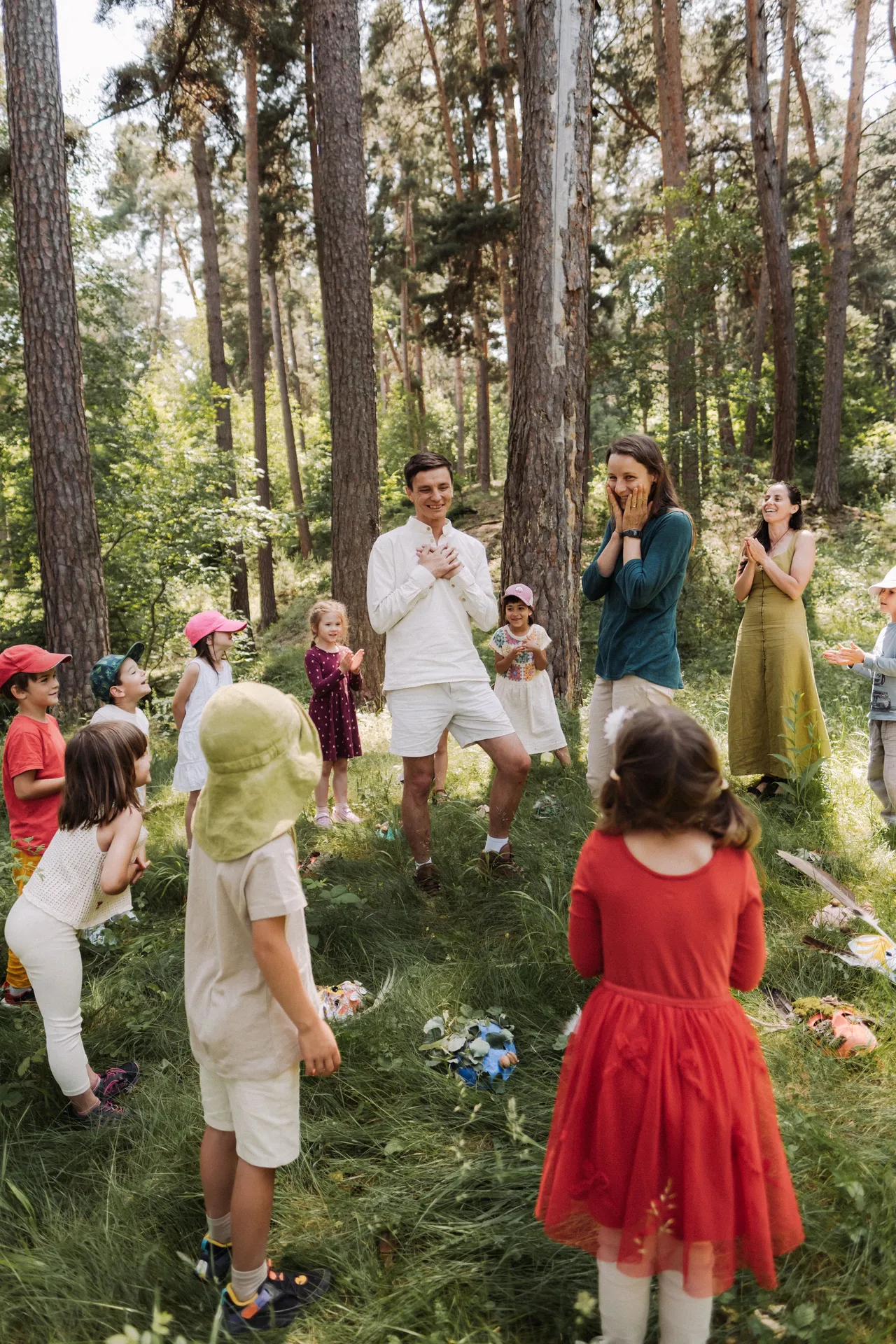
A kindergarten with a thing for nature
Waldkinder - the Kindergarten is a community centered on learning through play and free exploration in nature, designed for children aged 2 to 6. At our kindergarten, children have direct access to the natural environment and its challenges, in any season. Through experiences driven by their own abilities and interests, children nurture their intuition, self-esteem, and physical and emotional resilience. This prepares them for the future, no matter what it may hold, and allows them to grow in harmony with everything around them, fully aware of their uniqueness and considerate of others’ needs.
We believe in learning in natural environments, through play and experiences initiated by the children themselves. Everything we do aligns with this philosophy. The child is at the center of our universe—a safe, warm, gentle, and fun universe that supports each child’s natural development at physical, social, cognitive, creative, and emotional levels.
Growing through Play, Belonging, and Discovery
At Waldkinder, learning begins with freedom, trust, and connection—to self, others, and the land we belong to. Our days are shaped not by rigid schedules but by deep respect for each child’s natural rhythm, curiosity, and sense of wonder.

Children at Waldkinder spend long, uninterrupted periods each day in free, unstructured play—often 1.5 to 2 hours—using open-ended, natural materials like ropes, planks, ladders, and loose parts. They initiate their own activities, explore independently, and learn to take calculated risks. Adults are close by, but not in control—educators observe, support, and gently guide when needed.

We treat the village of Gura Râului and its surroundings as an extension of our classroom. Children grow up knowing the names of plants, the paths through the forest, the animals in the fields, and the people in their village.
Learning becomes grounded, sensory, and meaningful. The local landscape, history, and culture are not background—they are the curriculum.
The local German-speaking tradition is an integral part of our place-based learning approach. We honor this cultural heritage by creating a rich environment where children are naturally exposed to the German language—through daily conversation, songs, stories, and playful repetition woven into their everyday experiences.
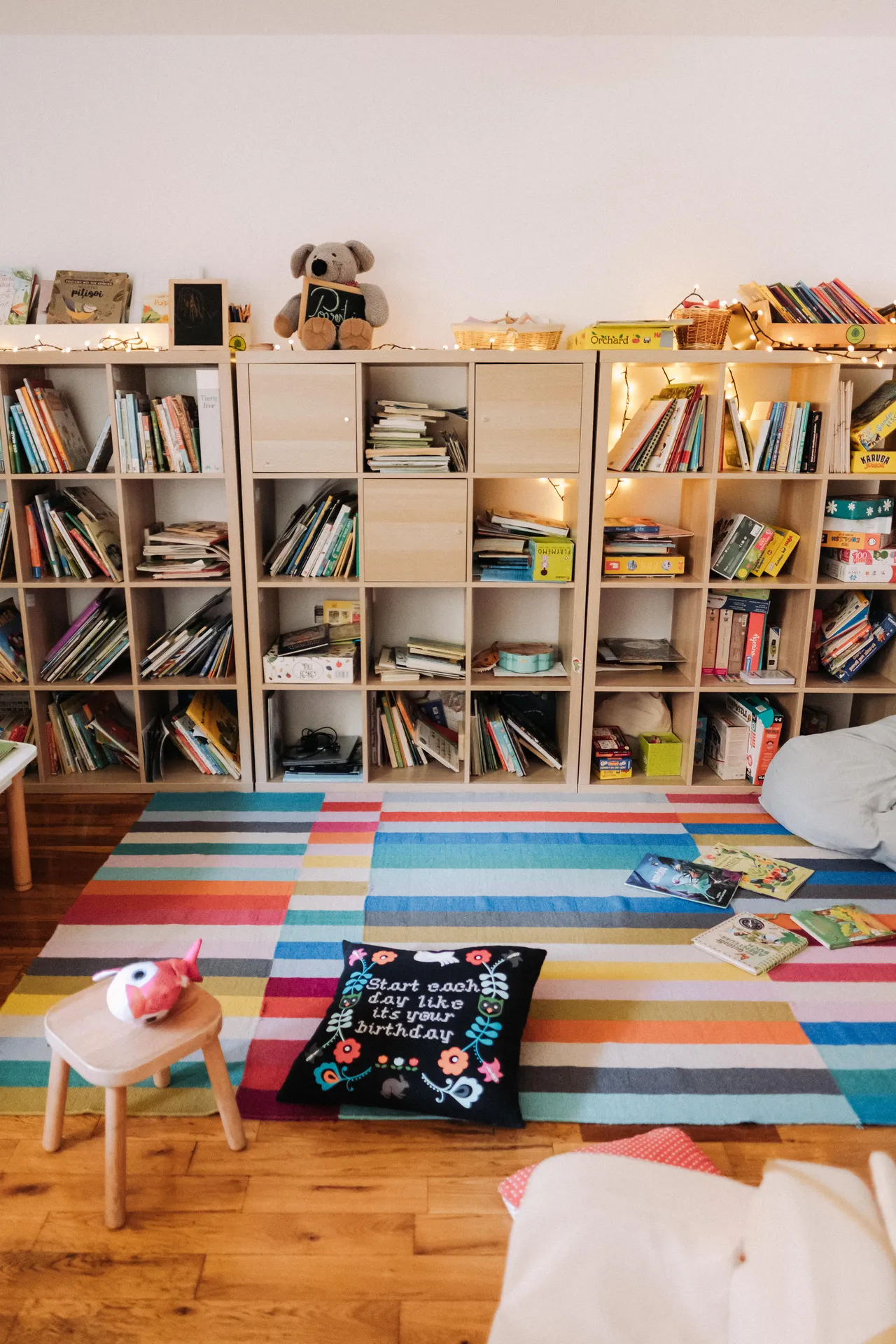
We follow the child’s natural rhythms and neurological readiness for learning. This means we don’t push academic content before the child is developmentally prepared. Instead, we create engaging, real-world contexts for learning, in sync with the brain’s sensitive periods for language, logic, coordination, and creativity.
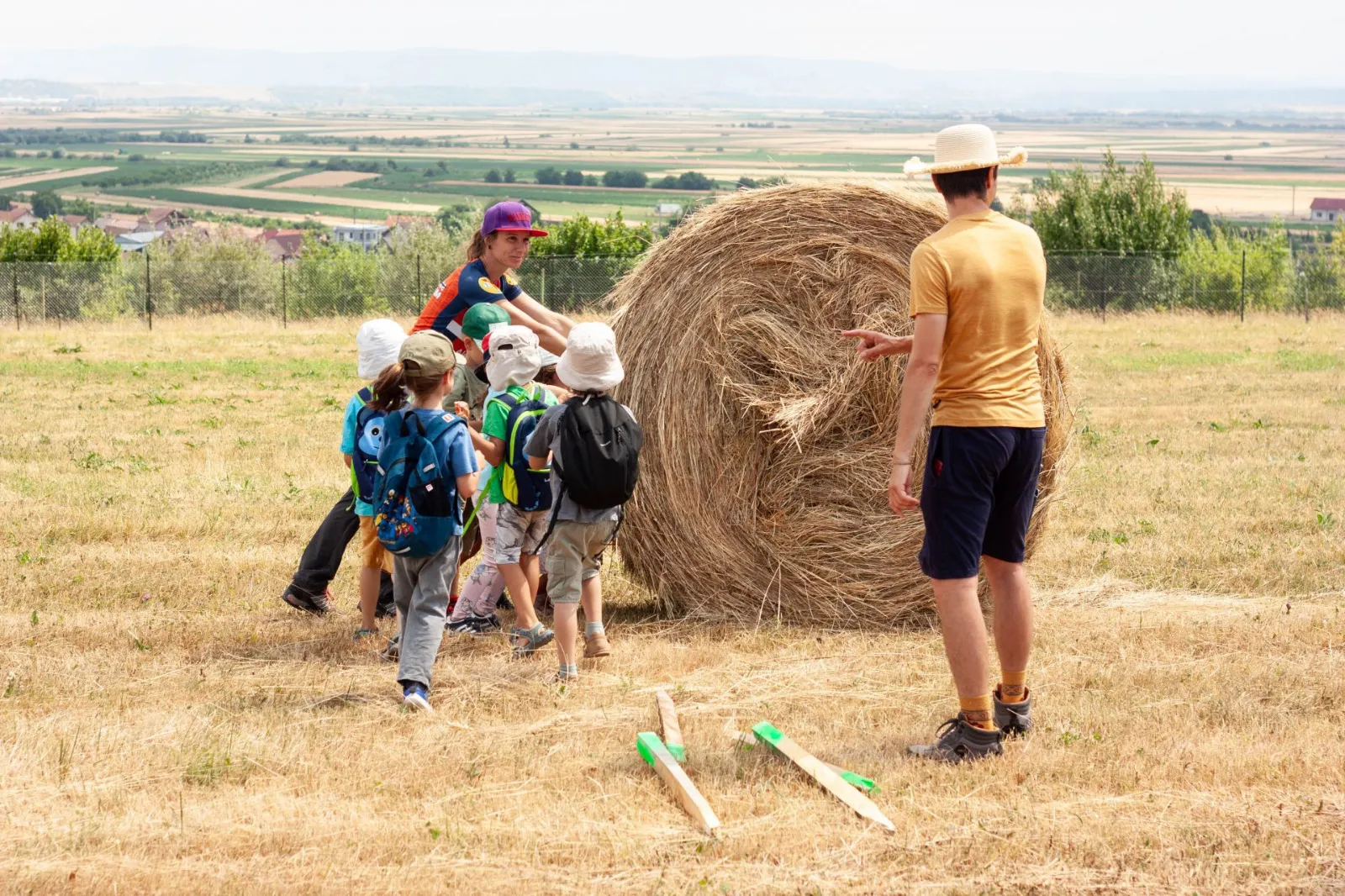
We are small by design. Children learn in groups where every voice matters and relationships are deep. Each child is known—not just by their name, but by who they truly are.
This community allows for individual flexibility: more time for those who need it, challenge for those who crave it, and emotional safety for all.
We see ourselves as a tribe, not an institution. Educators, children, and parents alike co-create the culture.
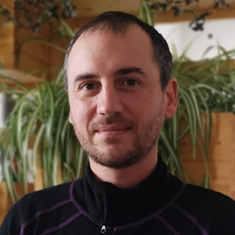
I come from a Waldorf education background and I’m passionate about photography, technology, and restoring old bicycles, as well as creating experiences where children learn by engaging their creativity and imagination. These are key ingredients of Waldorf inspiration, and I use them generously in imaginative play and hands-on, experiential learning.
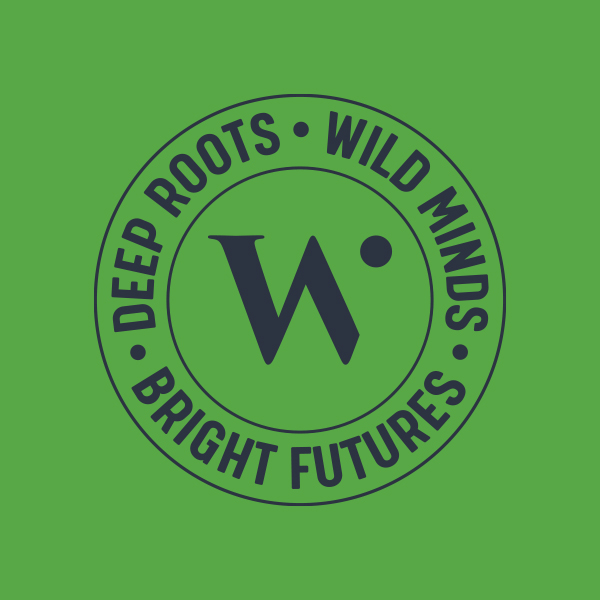
I create, build, and play as naturally as I have embraced my role as a mother. Just as naturally, I felt a calling to join this team and went from navigating across seas and oceans to becoming a forest kindergarten educator. This is yet another journey of exploration, diving into the depths and adventures of guiding little ones on the voyage of their lives.”
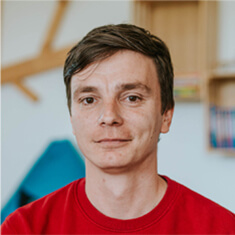
When I’m not hiking or up in the mountains, you’ll find me with children. They have that unique gift of challenging you and, by the end of the journey, making you a better, more fulfilled person — and infinitely more patient!

I was born in Mărginime, but in high school I moved to Denmark, where I spent my formative years as an educator. Eventually, I returned with my family to the place I had left, and at Waldkinder I found the only kindergarten where I could be the educator I had hoped to become. It’s probably the only place where it truly matters to be raising happy, confident, socially capable children through play and trust, not pressure.

I have been preparing to be an educator for as long as I can remember. The local tradition led me to German school, pedagogy studies, qualification exams, and experience in kindergartens and schools here at home. What I have the chance to fully apply now, at Waldkinder, are my natural abilities—my true vocation when it comes to learning: freedom, exploration, joy, play, and discovery, which are, in fact, the secret to an educational journey that leaves a lasting mark.
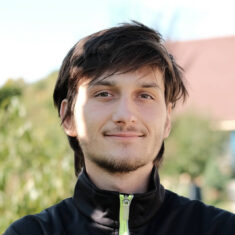
I’m passionate about sports and every form of art. In winter, you’ll find me on skis; in summer, cycling through the mountains. And when I’m not on the move, I sculpt, paint, or sing. Children often see me singing, and I’ve discovered it’s the best way to connect with them and help them open up.
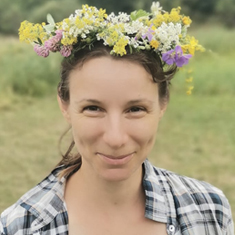
I am a sociologist and trainer by education, but my life revolves around sports, mountains, and nature. A ski and climbing instructor, mother, and educator, I would say I also have two magical hands that ‘bake’ not only sugar-free treats but also outdoor exploration and adventure experiences for children of all ages.
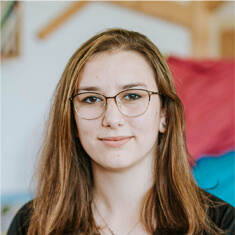
Everyone tells me I have a special gift when it comes to interacting with children. I wouldn’t necessarily call it a gift — it’s more of a recipe: plenty of patience, holding them close as much as they need, and looking them in the eyes with warmth. And experience — I’ve been caring for kindergarten children since I was in kindergarten myself.

I’m also one of those whose role as a mother completely changed their perspective on life. I used to work in marketing, but being a mother of two turned all my forecasts upside down, and I traded charts and graphs for being 100% present with my children. Through them, I’ve become the person I am today — an educator in-the making who feels called to share her gift by working with other children in the largest spot I found in the heart of nature: the Waldkinder garden.
Yes. Waldkinder is fully authorized by the Romanian Ministry of Education, following national early childhood education standards while bringing in our nature-based, play-centered approach.
Our daily interactions are primarily in Romanian, but we also integrate German language — as a way of honouring the local language tradition — into songs, routines, and activities. This exposure to a second language happens naturally, helping children develop an ear for it from an early age. We don’t encourage pressure or memorisation for the sake of passing language tests; instead, we focus on joyful, organic language experiences.
A forest kindergarten is an early childhood program where children spend the majority of their day outdoors, in all seasons and most weather conditions. Learning happens through play, exploration, and hands-on experiences in nature.
Yes! We believe nature is the best classroom, so we are outdoors daily — whether it’s sunny, rainy, or snowy. We adapt our activities and clothing to the weather, not the other way around.
Absolutely. Our educators are trained in outdoor safety, first aid, and risk assessment. We believe in “safe risk” — giving children opportunities to climb, balance, explore, and problem-solve while ensuring they are supervised and supported.
Learning happens everywhere. In the forest, children practice early math by counting sticks, develop literacy by storytelling, build science knowledge by observing animals and plants, and strengthen social-emotional skills through teamwork and negotiation.
There’s no bad weather — only unsuitable clothing! We work with families to ensure children have proper gear for every season. In extreme conditions, we stay at the kindergarten for warmth and safety.
Yes, and we see it as a good thing! Mud, water, and sand are part of healthy play. We recommend clothes that can get messy — the learning and joy are worth it.
We prepare them socially, emotionally, and physically — giving them resilience, curiosity, independence, and problem-solving skills. These are the foundations for academic success when they move on to formal schooling. During the last year of kindergarten, right before school, we focus more on strengthening their school-readiness skills.
We encourage family participation in seasonal celebrations, community events and special projects. Parents are also welcome to share their skills, stories, or crafts with the children.
It’s normal for young children to build their immunity through exposure to everyday germs, especially in a community setting. Time outdoors actually helps strengthen their immune systems, as fresh air and active play reduce the spread of viruses compared to indoor environments.
For everyone’s well-being, we ask that children with fever, contagious illnesses, or symptoms that keep them from participating comfortably stay home until they are well enough to join activities again. This keeps the group healthy and ensures your child can fully enjoy their time at Waldkinder.